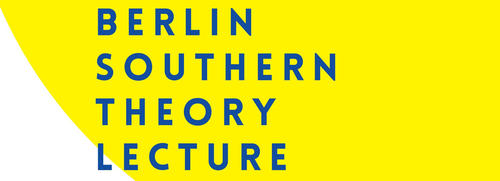PhD Programs
(Last update: 03. April 2025)
If you are interested in starting your doctoral thesis at our institute, you can choose between two options:
2. PhD Program in Research Clusters or at a Graduate School
For an overview of ongoing and completed doctoral projects at the Institute of Social and Cultural Anthropology please see:
- List of completed doctoral dissertations
- List of ongoing doctoral research projects
1. Individual Doctorate
The individual doctorate – independent research under supervision of a professor – is still the most common way to pursue a doctorate in Germany. This usually provides greater freedom as far as the choice of subject is concerned. If you have an interesting idea for a doctoral project, please contact one of the following professors who are authorized to supervise doctoral projects. Your proposed project should fit into their areas of research:)
- Prof. Dr. Hansjörg Dilger
Full Professor at the Institute of Social and Cultural Anthropology
- thematically: Anthropology of religion (esp. Pentecostalism and Islam; religious diversity); Medical anthropology (HIV/AIDS, anthropology of biomedicine, transnationalization of health, medicine and healing), Sexuality, kinship and gender (esp. masculinities), Transnationalism and migration, Anthropology of education and learning.
- regionally: Eastern and Southern Africa, migratory and transnational contexts
- see also: List of current doctoral projects supervised by H. Dilger - Prof. Dr. Claudia Liebelt
Full professor at the Institute of Social and Cultural Anthropology
- thematically: anthropology of the body and the senses, gender and sexuality, religion, migration and Critical Beauty Studies as well as debates on new materialism, toxicity and postsecularism.
- regionally: Middle East, Turkey, Israel and Morocco, Philippines.
- Prof. Dr. Kai Kresse
Special professor of Social and Cultural anthropology and Vice-Director of the Leibniz-Zentrum Moderner Orient Berlin
- regionally: Africa (East Africa, Swahil Coast, Southern Africa, trans-regional connections esp. Indian Ocean, Muslim World; open for all regions
- thematically: anthropology and philosophy; intellectual culture and social practise; regional literatures; local thinkers; religion and society, Muslim Worlds; post-colonial experience; anthropology of texts; Cultural and Social theoriy; mobility and trans-regional Research - Prof. Dr. Stephanie Schütze
Univ. Prof. for Social and Cultural Anthropology at Lateinamerikanisches Institut of Freie Universität Berlin
Regional Focus on: Latin America
Research Focus on: migration and gender - Prof. Dr. Barbara Göbel
Honorary Professor of Social and Cultural Antrhropology and Director of the Ibero-American Institute
- regionally: Latin America
- thematically: Cultural dimensions of risk management; vulnerability; Institutions and global environmental change, environmental perception; Gender relations and social identity; Knowledge circulation, knowledge forms, archives of knowledge
- PD Dr. Tilo Grätz
Privatdozent Social and Cultural Anthropology
- thematically: media anthropology, economic anthropology, political and social anthropology, technical anthropology, migration and transnationality, politics of memory
- regionally: West Africa (esp. Benin, Burkina Faso, Mali, Ghana); Europe (Brandenburg; South Italy) -
PD Dr. Paola Margherita Ivanov
Privatdozentin Social and Cultural Anthropology; main profession: curator of the East-, North East-, Central and South African Collections at the Ethnological Museum
- regionally: Indian Ocean Indischer Ozean and Eastr Africa coastal cities; Central-, North East - and East Africa
- thematically: aesthetics, material culture, consumption and art and their significance for social articulation processes, knowledge production and for the constitution of trans/locality, ethnology of the body and the senses, Islam and gender in their global embedding, global interconnectivity and mobility, cultural interactions and the resulting processes of change in the past and present, ‘(Post)Modernity’ in Africa, forms of political organisation, religious and economic anthropology, museums, curating and heritage, provenance research on ethnological collections
Once you contact one (or several) of the above mentioned professors with the proposal of pursuing a doctoral degree under her/his supervision, please add:
- a short sketch of your doctoral project (150-200 words)
- a short cv
- copies of your academic qualifications (requirement for acceptance as a doctoral candidate is generally a very good final degree)
If you have found a supervisor who is interested in supervising your doctoral project, he or she will also inform you about funding or scholarship opportunities.
There are no scholarships for individual doctorates provided directly by the Institute of Social and Cultural Anthropology.
2. PhD Programs in Research Clusters or at a Graduate School
Pursuing doctoral studies in a doctoral degree program, doctoral candidates come together to work on projects related to a common interdisciplinary research topic. During the course of their doctorate, junior researchers are trained in obtaining a broad set of skills to enhance their personal, professional and career development.
The Institute of Social and Cultural Anthropology participates in the following Research Clusters and Graduate Schools which offer formalized PhD course programs. For information and modes of application please consult the following websites:
Detailed Information on PhD Procedures
Detailed information on the technical aspects of PhD procedures in our faculty (Department of Political and Social Sciences) can be found on the website
Attaining a Doctorate in the Department of Political and Social Sciences
https://www.polsoz.fu-berlin.de/en/nachwuchsfoerderung/promotion/index.html
There you find detailed information on


